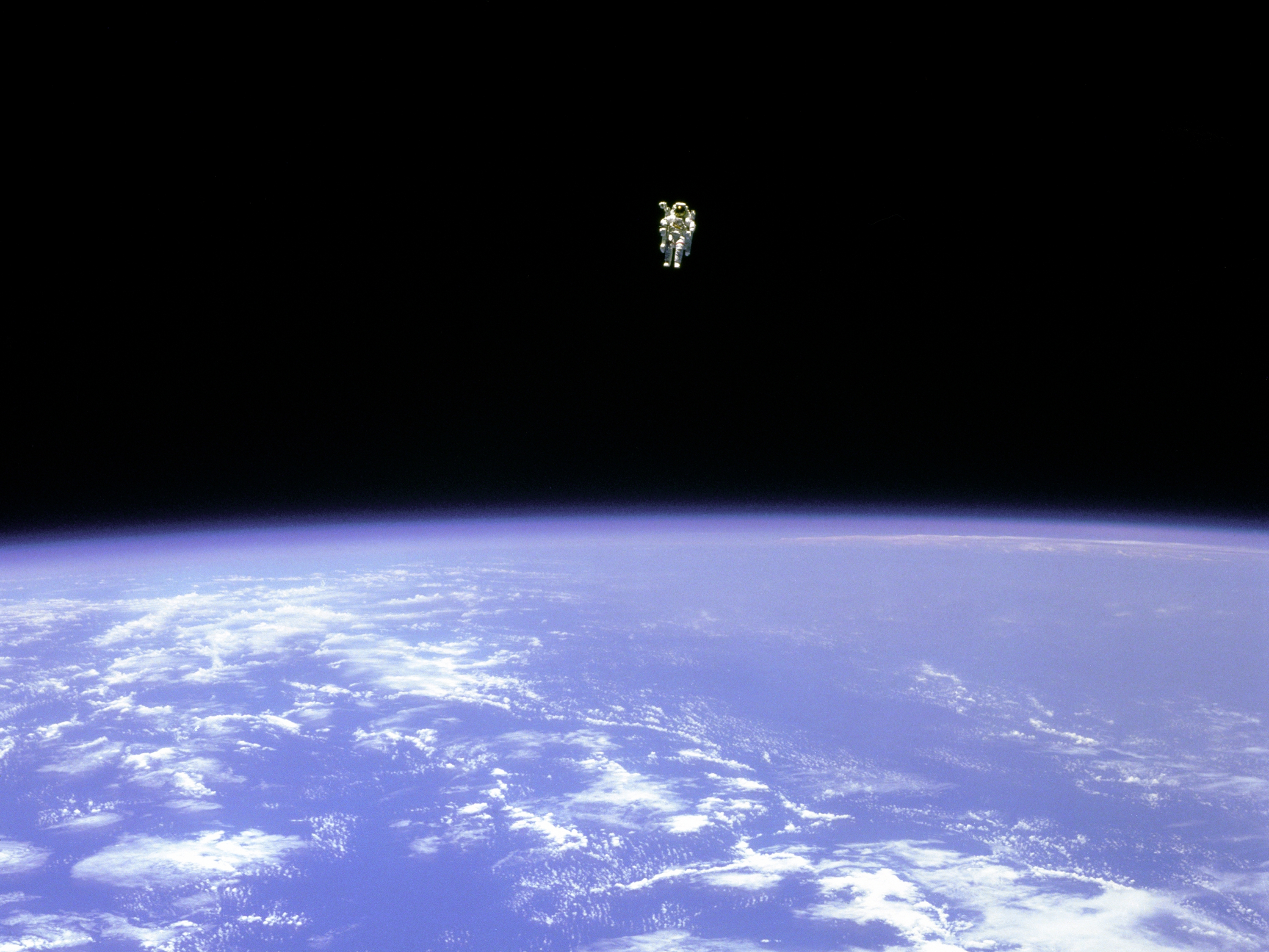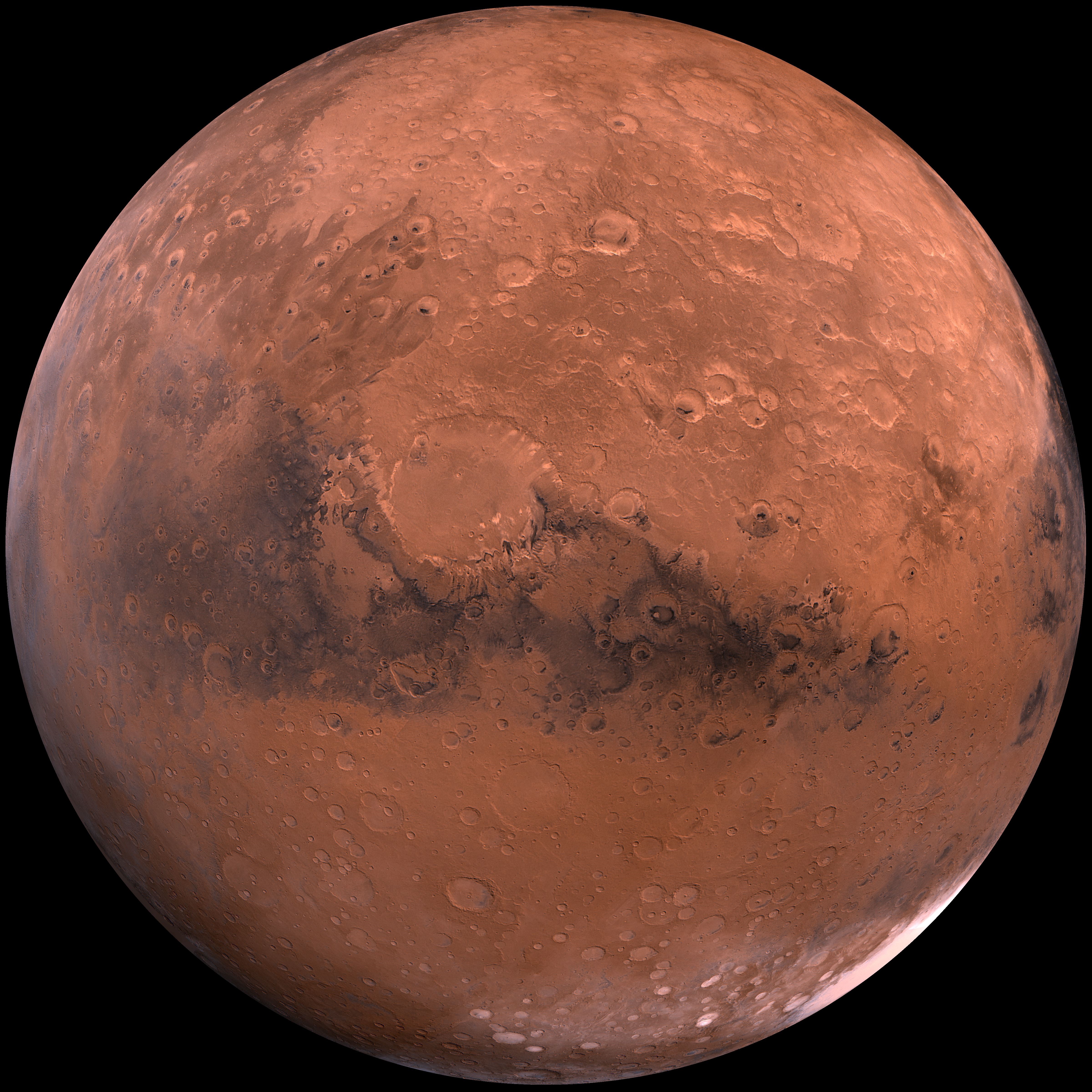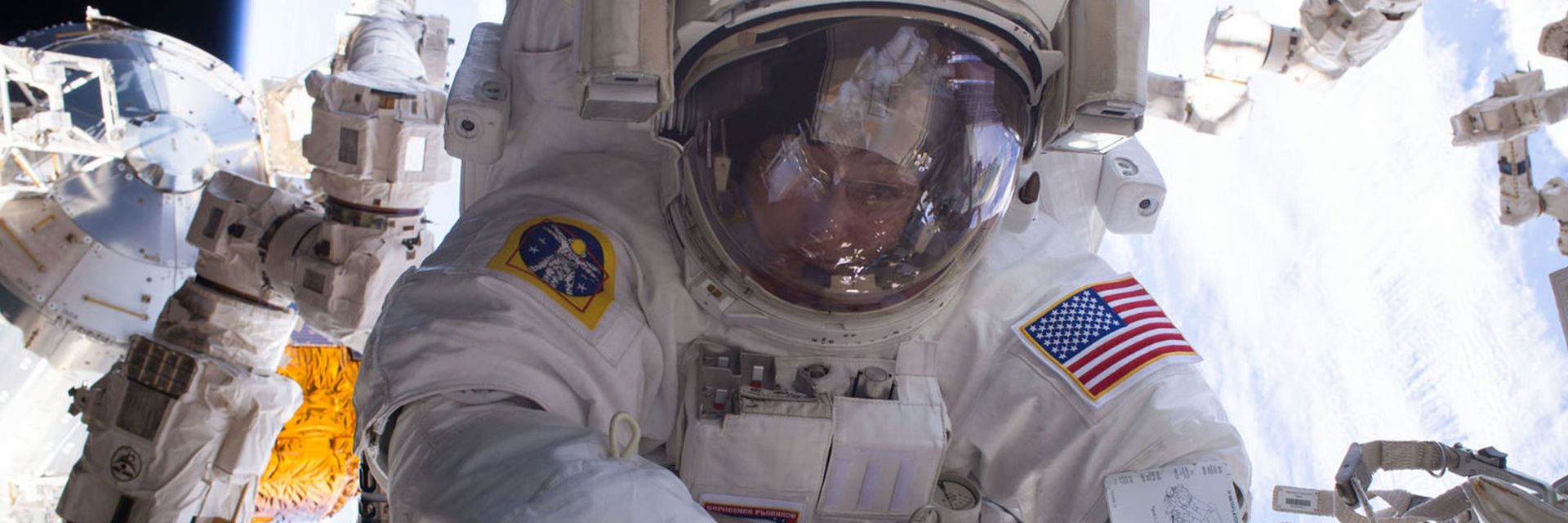Space travel seems out of this world, but it comes with a cost. Each mission has significant physical and psychological effects on the astronauts involved. But what are these effects, and what can be done about them? As focus shifts to “what’s next,” international attention has been placed on studying the effects of long-term space travel on the body and mind, and what it means for the future of space travel.
◊
The idea of traveling beyond our atmosphere into space has been a source of fascination for more than a century. Since the advent of the television, we’ve crowded around the screens and shared a sense of wonder and comradery as monumental launches were broadcast – the same sense of wonder a child has as he or she plays with toy spaceships or looks up, wide-eyed, at the stars, wishing one day to see them from a closer vantage point. Space is an unknown, and people around the world share a collective dream to see and learn more about it.

(Image courtesy of NASA, via Wikimedia)
But is it all fairytale-like wonder and positive discovery? While astronauts positively share that their view of themselves and the universe have been permanently expanded by seeing Earth from space, there’s another side to the story that we are now learning about. Take a deeper look into space travel, and you’ll see how astronauts are adversely affected – both physically and mentally.
The Physical Effects of Space Travel
Breaking out of the atmosphere into space is no easy feat – and it’s safe to assume that the human body and mind may be affected by the physical changes one encounters on the journey. After all, it is like putting oneself through trauma … no matter how cool it seems. So one shouldn’t be surprised to learn that there are a multitude of physical effects that space travel has on one’s body. But what exactly are the changes?
For starters, astronauts are exposed to radiation on their expeditions – radiation that is naturally shielded from us in our daily lives by the magnetic field generated by Earth’s liquid iron core. The radiation in space can either be acute or chronic – acute meaning that a high dose of radiation is experienced in a short period of time, and chronic being low levels dispersed over a long time.
Not sure where the radiation actually comes from? Well, it comes from the Sun and other sources in the Milky Way galaxy that produce subatomic particles. These particles tear through DNA molecules, splitting and damaging them (doesn’t sound too great, does it?). The effects of such radiation can possibly lead to cancers and other diseases. According to NASA, the radiation may place astronauts at significant risk for radiation sickness, plus an increased lifetime risk for cancer, central nervous system problems, and degenerative diseases.
How serious of a concern is radiation exposure to astronauts? According to Space.com, the amount of radiation an astronaut will encounter on the shortest trip between Earth and Mars is the equivalent to receiving a whole-body CT scan every five or six days.
In addition to battling the risks of radiation exposure, astronauts also have to cope with the shift from normal gravity to weightlessness. While it might sound like fun to float around in a spaceship, the lack of gravity can have adverse effects on the human body. Astronauts may, unsurprisingly, experience motion sickness, but gravity shifts can also lead to muscle wasting and changes in visual perception.

Solar radiation from our Sun bombards Earth every second.
(Image courtesy of Dmcdysan, via Wikimedia)
And the effects happen quickly, well within the average six-month length of an International Space Station (ISS) mission. In fact, after only four months in space, astronauts experience changes in their eyes, muscle atrophy, and the loss of bone density. Adding to the list of problems is the risk of kidney stones, which are more prevalent in altered gravity environments. Some of these medical issues are part of Space Adaptation Syndrome, a diagnosis that includes gravity-related symptoms such as motion sickness, headaches, and facial stuffiness.
After evaluating 89 shuttle missions from 1981 to 1998, medical research at NASA shows that there were over 1,800 in-flight medical events experienced by U.S. astronauts. Forty percent were due to the physical problems involved with Space Adaptation Syndrome.
The Psychological Costs of Each Mission
Okay, let’s be honest. The threat of these physical effects – short term and long term – are enough to have an adverse effect on anyone psychologically. But these aren’t the only sources of stress that astronauts face. When they’re not worrying about space radiation, gravity shifts, and a general lack of sleep, they’re focusing on their work in an incredibly high-stakes environment, with a healthy serving of intense public scrutiny (the cherry on top of a very stressful sundae).
NASA has noted that psychological problems also tend to arise, especially in relation to the stage of a mission. Astronauts may experience significant bouts of anxiety and depression while on missions. In a classic “what came first” scenario, it’s hard to say if the issues are caused by stressful missions or if missions become stressful because of them, but either way we can assume that the whole problem can easily become a vicious cycle.
Astronauts also go through an immense amount of isolation, and it’s not uncommon for delusions and hallucinations to occur. These psychosomatic issues have been enough to end a trip sometimes – as was the case with the Soviet Soyuz T14-Salyut 7 mission. The cosmonauts involved in that mission called it quits after depression spread amongst all the crew members, and behavioral issues impacted performance.
In 1976, the Soyuz-21 mission to the Salyut-5 space station came to an abrupt halt when crew members reported smelling a strong odor – an event that was later determined to be just a shared delusion amongst the crew.
Behavioral and psychological issues have also affected American astronauts. For example, during the Skylab 4 mission, long hours, exhaustion, and disagreements between the crew and mission control resulted in a serious act of defiance. Crew members turned off their radio and spent the entire day ignoring NASA, opting instead to spend their day quietly watching Earth’s surface pass by.

The International Space Station
(Image courtesy of NASA)
While astronauts’ isolation from home, society, and the Earth itself causes problems, living in such a small space with their peers may result in issues, as well. It’s documented that problems such as interpersonal tension, decreased crew cohesiveness over time, and the lack of privacy also take a toll on the astronauts’ psyches. But wait, there’s more (to take a page from Billy Mays’s book): Astronauts suffer from psychological changes post-flight, too, and have been known to experience personality changes once they return home.
The Positive Psychological Effects of Space
But it’s not all bad news. Some say that traveling in space may come with notably positive psychological effects. If space travelers can get past all of the issues mentioned above, their experience may be salutogenic (one that actually promotes health and wellbeing). In a 2006 survey, 39 astronauts and cosmonauts found their experience of space travel to be a meaningful experience the effects of which endure post-flight.
“You develop an instant global consciousness, a people orientation, an intense dissatisfaction with the state of the world, and a compulsion to do something about it.” – Apollo 14 astronaut Edgar Mitchell
So if the physical and psychological setbacks of space travel are so great, how could one benefit from it? According to a study published by the Journal of Aviation Medicine, “break-off” occurs. This is a term used by astronauts to describe the phenomenon of feeling disconnected from the Earth when you are above it, particularly in orbit. While this feeling obviously comes with some rough side effects, it’s easy to imagine how living amongst the stars could be a spiritual and transcendent experience.
Taking Precautions and Providing Help from Afar
With all of the adverse physical and psychological challenges that astronauts face, there’s an obvious need both for precautions to be taken pre-flight and for effective monitoring to be administered throughout each mission. In order to qualify for a mission, astronaut candidates must complete hours of psychiatric screening. Teams of mental health providers are also employed to support personnel during space missions, and crew members on the International Space Station partake in bi-monthly psychological conferences with professional staff. However, astronauts don’t always feel safe speaking up when issues arise; they sometimes fear of being disqualified for future missions, but NASA is working towards changing this perception.
According to NASA, the medicine kits on the ISS have antipsychotics, antidepressants, and anxiolytic drugs should they be needed by astronauts during their missions.
NASA is pursuing a healthier approach towards the psychological well being of its astronauts, as well as encouraging the creation of safe spaces to discuss mental health. In recent years, NASA funded a software program developed by psychologists to help astronauts on their missions. The program is designed to help astronauts work through depression and other mental health issues, anonymously, allowing them to seek help without fear of being disqualified from future flights.
The Future of Space Travel and Living on Mars
The first launch of a satellite (Sputnik 1) from our tiny planet took place a little over 60 years ago, and there is still so much to learn and to explore. And the missions have only just begun. We’ve been in space, we’ve been to the Moon, and now focus is shifting towards Mars and the possibility of traveling there. The problem? It’s a much longer space journey than any human has ever made.

Humans plan to step foot on Mars in the 2030's.
(Image courtesy of USGS, via Wikimedia)
Because this is quite literally uncharted territory, everyone is unsure of how the months-long trip will affect astronauts. Fortunately, in recent years there has been a growing international recognition of the importance of mental health as it relates to the unprecedented challenges astronauts will face as they travel farther and farther through space. How far and how long can they push themselves.
While there is much to learn, experiments are being conducted to determine just how future space missions will affect those deployed. For example, between 2007, the U.S., Russia, China, and the European Space Agency conducted a joint psychosocial experiment called Mars500. The study included a 520-day flight simulation to Mars in which six international participants were sealed inside a mock spacecraft. The goal? To study the psychological effects of long-duration spaceflight.
According to the Proceedings of the National Academy of Sciences, four out of the six crew members succumbed to considerable sleep problems – behaving similarly to animals in hibernation – and psychological issues. In addition, the crew became more withdrawn and less motivated towards the end of the trial. While these findings aren’t exactly good news, they constitute a step in the right direction toward figuring out just how far people can go – and how to do it.
There certainly are a lot of unknowns clouding the hopes of farther and longer space missions, but that said, the future of space travel is as bright as the stars. By placing a larger emphasis on the mental well being of space crews, and by appropriately evaluating the physical risks, there’s no telling how far we can really go.
Ω
Title image: NASA astronaut Peggy Whitson is seen during a Jan. 6, 2017, spacewalk during Expedition 50 aboard the International Space Station. Credit: NASA.

